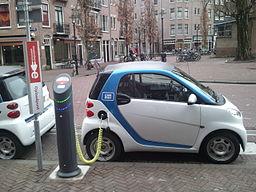
It’s common knowledge that operating an electric vehicle (EV) is cheaper than driving a traditional combustion car, but few of us could say by how much. Estimating the cost to travel any distance in a combustion vehicle is pretty straightforward. As long as you know the price of gas and the distance traveled, you’ll soon arrive at an answer. When it comes to EVs, however, things quickly become murky. What is a kilowatt-hour? How much is it worth? And more importantly, how does it compare to a gallon of gas?
Luckily, the Department of Energy’s eGallon calculator will answer these questions. In essence, it tells you the electricity bill for traveling the distance afforded by one of gallon of gas in any given state. If you’re curious, the national average for a gallon of gas is $3.49, while traveling the same distance in an EV would cost $1.18. For some reason, the electric cost is more than I thought it would be.
The cost of driving electric vehicles is estimated with the formula, distance × state-specific electricity price × average EV electricity consumption. The distance value is fixed at 28.2 miles, which is the average combined fuel economy for MY2012 passenger cars. Unfortunately, the calculator is not setup to differentiate between vehicle models, though this would make for an excellent enhancement. However, the eGallon calculator will let you choose your state to account for differences in statewide average electricity prices. The average EV electricity consumption is found using the top 5 selling plug-in electric vehicles (Chevrolet Volt, Nissan Leaf, Tesla Model S, Ford Focus EV, BMW Active E). Again, the ability to compare specific models would greatly enhance the calculator’s utility.
The eGallon calculator is a much-needed tool for EV buyers. Before it was released back in June, we were stuck with the MPGe label. While it tells consumers how efficiently a particular vehicle uses electricity, it says nothing directly about operating cost, which is where the gas versus electric debate is centered (which is somewhat of a paradox within itself). The eGallon computer is severely limited by its lack of customization, but is a huge step towards quantifying the benefits of operating electric vehicles in tangible ways.
Image By Ludovic Hirlimann [CC-BY-SA-2.0 (http://creativecommons.org/licenses/by-sa/2.0)], via Wikimedia Commons




